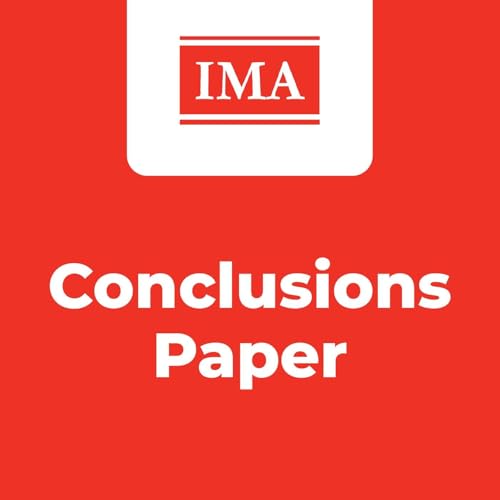Episódios
-
 Dec 4 20258 minutos
Dec 4 20258 minutosFalha ao colocar no Carrinho.
Tente novamente mais tardeFalha ao adicionar à Lista de Desejos.
Tente novamente mais tardeFalha ao remover da Lista de Desejos
Tente novamente mais tardeFalha ao adicionar à Biblioteca
Tente outra vezFalha ao seguir podcast
Tente outra vezFalha ao parar de seguir podcast
Tente outra vez -
 Dec 4 20255 minutos
Dec 4 20255 minutosFalha ao colocar no Carrinho.
Tente novamente mais tardeFalha ao adicionar à Lista de Desejos.
Tente novamente mais tardeFalha ao remover da Lista de Desejos
Tente novamente mais tardeFalha ao adicionar à Biblioteca
Tente outra vezFalha ao seguir podcast
Tente outra vezFalha ao parar de seguir podcast
Tente outra vez -
 8 minutos
8 minutosFalha ao colocar no Carrinho.
Tente novamente mais tardeFalha ao adicionar à Lista de Desejos.
Tente novamente mais tardeFalha ao remover da Lista de Desejos
Tente novamente mais tardeFalha ao adicionar à Biblioteca
Tente outra vezFalha ao seguir podcast
Tente outra vezFalha ao parar de seguir podcast
Tente outra vez -
 Nov 24 20255 minutos
Nov 24 20255 minutosFalha ao colocar no Carrinho.
Tente novamente mais tardeFalha ao adicionar à Lista de Desejos.
Tente novamente mais tardeFalha ao remover da Lista de Desejos
Tente novamente mais tardeFalha ao adicionar à Biblioteca
Tente outra vezFalha ao seguir podcast
Tente outra vezFalha ao parar de seguir podcast
Tente outra vez -

Leading with Purpose: Innovation, Growth and the Evolution of Enterprise Leadership with B Santhanam
Nov 23 20259 minutosFalha ao colocar no Carrinho.
Tente novamente mais tardeFalha ao adicionar à Lista de Desejos.
Tente novamente mais tardeFalha ao remover da Lista de Desejos
Tente novamente mais tardeFalha ao adicionar à Biblioteca
Tente outra vezFalha ao seguir podcast
Tente outra vezFalha ao parar de seguir podcast
Tente outra vez -
 Nov 20 202514 minutos
Nov 20 202514 minutosFalha ao colocar no Carrinho.
Tente novamente mais tardeFalha ao adicionar à Lista de Desejos.
Tente novamente mais tardeFalha ao remover da Lista de Desejos
Tente novamente mais tardeFalha ao adicionar à Biblioteca
Tente outra vezFalha ao seguir podcast
Tente outra vezFalha ao parar de seguir podcast
Tente outra vez -
 Nov 20 20257 minutos
Nov 20 20257 minutosFalha ao colocar no Carrinho.
Tente novamente mais tardeFalha ao adicionar à Lista de Desejos.
Tente novamente mais tardeFalha ao remover da Lista de Desejos
Tente novamente mais tardeFalha ao adicionar à Biblioteca
Tente outra vezFalha ao seguir podcast
Tente outra vezFalha ao parar de seguir podcast
Tente outra vez -
 Nov 19 20256 minutos
Nov 19 20256 minutosFalha ao colocar no Carrinho.
Tente novamente mais tardeFalha ao adicionar à Lista de Desejos.
Tente novamente mais tardeFalha ao remover da Lista de Desejos
Tente novamente mais tardeFalha ao adicionar à Biblioteca
Tente outra vezFalha ao seguir podcast
Tente outra vezFalha ao parar de seguir podcast
Tente outra vez

